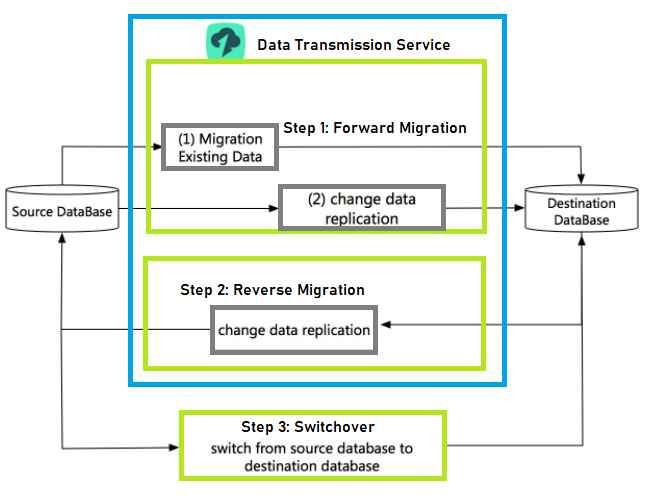By Raghav K.
Cloud computing has been the focal point of development for enterprises with digital transformation as the primary focus. With major trends and practices related to development and operations, Alibaba Cloud offers a seamless cloud experience to users worldwide.
Cloud computing has evolved over the past decade to face multiple shifts in technology and delivery execution. These trends change continually with small and large inventive theories enabling a subtle shift in methodology. While the functionality is jaw-dropping, it comes with its share of complexities. These complexities can be mostly attributed to the rapid acceleration of cloud migration and vast adoption of practices without forethought about the implications of operations.
This article aims to help reduce and overcome cloud computing complexities using tailored cloud adoption and cloud upgradation solutions.
With the addition of vast cloud architecture, including hybrid cloud, multi-cloud, and public and private cloud (depending on your solution), the first complexity is that the legacy endpoints of technology, such as on-premise servers and databases, were never completely phased out. Some form of workload sharing takes place with cloud and legacy systems.
This is a prime example of hybridity we recommend since migration works best in phases. Your organization will need a solution that enables a phased or incremental migration with sturdy data points on the cloud and on-premise storage. This helps with business continuity.
The Data Transmission Service (DTS) supports migration between relational databases, data warehouses, and NoSQL databases. The Data Transmission Service (DTS) supports incremental data transfers from on-premise to the cloud and from cloud to cloud. Alibaba Cloud DTS offers:

Following industry standards for development and operations is a practice that can take away a lot of complexities associated with a cloud practice. A major shift in common patterns is reeled in and implemented with many legacy services getting retrofitted with security, governance, and management practices for the cloud. Today, the cloud-native architecture enables a much more refined scenario with containers and microservices leading the unified service structure.
Leveraging technology and practices based on cloud-native architecture plugs any issues with security, compliance, and observability. Zero-trust security is one such practice that can enable a more secured environment for your business and practice to flourish. It uses identity and authorization scenarios to set up secure access inside and outside the system.
Simpler solutions drive the maximum value and reduce complexities from the architecture. The cloud computing infrastructure is complex, but the derived services and solutions Alibaba Cloud provides to organizations are well defined. The core competence of any service is determined by the end user experience and how seamless and integrated the overall solution is.
Here, the primary focus should be solving any complexities to obtain the maximum value from your cloud solution. The solution should not be another complexity. Instead, the focus lies on how solutions are designed, implemented, and delivered.
Most organizations implement different systems based on different technology stacks and different execution approaches. The constant need for standardization is necessary to get over the complexities of managing multiple systems under one parent organization. This theory doesn't suggest using a centralized execution model, but it contemplates and comprehends the possibility of a better managed distributed system.
Multi-cloud is a distributed architecture that spans multiple cloud providers. However, it grants an unmatched level of disaster recovery, and the management can provide a highly complex structure. The solution is to work smarter and simplify operation handling with a standardized approach to tech stack management. Let's use an example of DevOps and explain how the dev and ops counterparts operate together.
In a typical scenario, the development and operations teams might not work in the same building, but the infrastructure link is designed to overcome the collaboration complexity of the system. DevOps is a prime example of collaboration.
The technology stack and solutions are widespread. The application of AI and machine learning, IoT automation, observability, serverless computing, and high-performance computing can all be deployed quickly with minimal configurations. Alibaba Cloud has a deeply defined technology stack that provides a simpler approach to the complex cloud computing solution table. This enables you to implement an automated operational approach with defined team building to simplify management.
A cloud partner, such as Alibaba Cloud, can take away these woes. Cloud computing with Alibaba Cloud lets you choose the solution that suits your scenario. Then, Alibaba Cloud tackles all the complexities and heavy lifting. You can shift and get online in minutes with fully-managed services that provide a wide array of tools and service support based on open-source models.
All projects require proper management, such as resource provisioning, O&M, security, and feedback. Any project can fail if the primary facets of core business values are unmet. Cloud service management can be antagonizing without the proper resources or O&M personnel. Alibaba Cloud lets you focus on your solution and leave the provisioning and service management to them.
Part 2 of this 2-part series will discuss the security layers of cloud computing and ways to choose technologies that are easy to work with when something goes wrong. I will also give out pointers about team building and how to work with communication complexities between teams.
Introducing Intelligent Retail: The Next Revolution for E-Commerce

2,593 posts | 793 followers
FollowAlibaba Clouder - April 1, 2021
Alibaba Clouder - March 8, 2021
Alibaba Clouder - April 23, 2021
Alibaba Clouder - April 2, 2021
Alibaba Clouder - March 9, 2021
Alibaba Clouder - April 6, 2021

2,593 posts | 793 followers
Follow Alibaba Cloud Flow
Alibaba Cloud Flow
An enterprise-level continuous delivery tool.
Learn More DevOps Solution
DevOps Solution
Accelerate software development and delivery by integrating DevOps with the cloud
Learn More Hybrid Cloud Solution
Hybrid Cloud Solution
Highly reliable and secure deployment solutions for enterprises to fully experience the unique benefits of the hybrid cloud
Learn More Microservices Engine (MSE)
Microservices Engine (MSE)
MSE provides a fully managed registration and configuration center, and gateway and microservices governance capabilities.
Learn MoreMore Posts by Alibaba Clouder